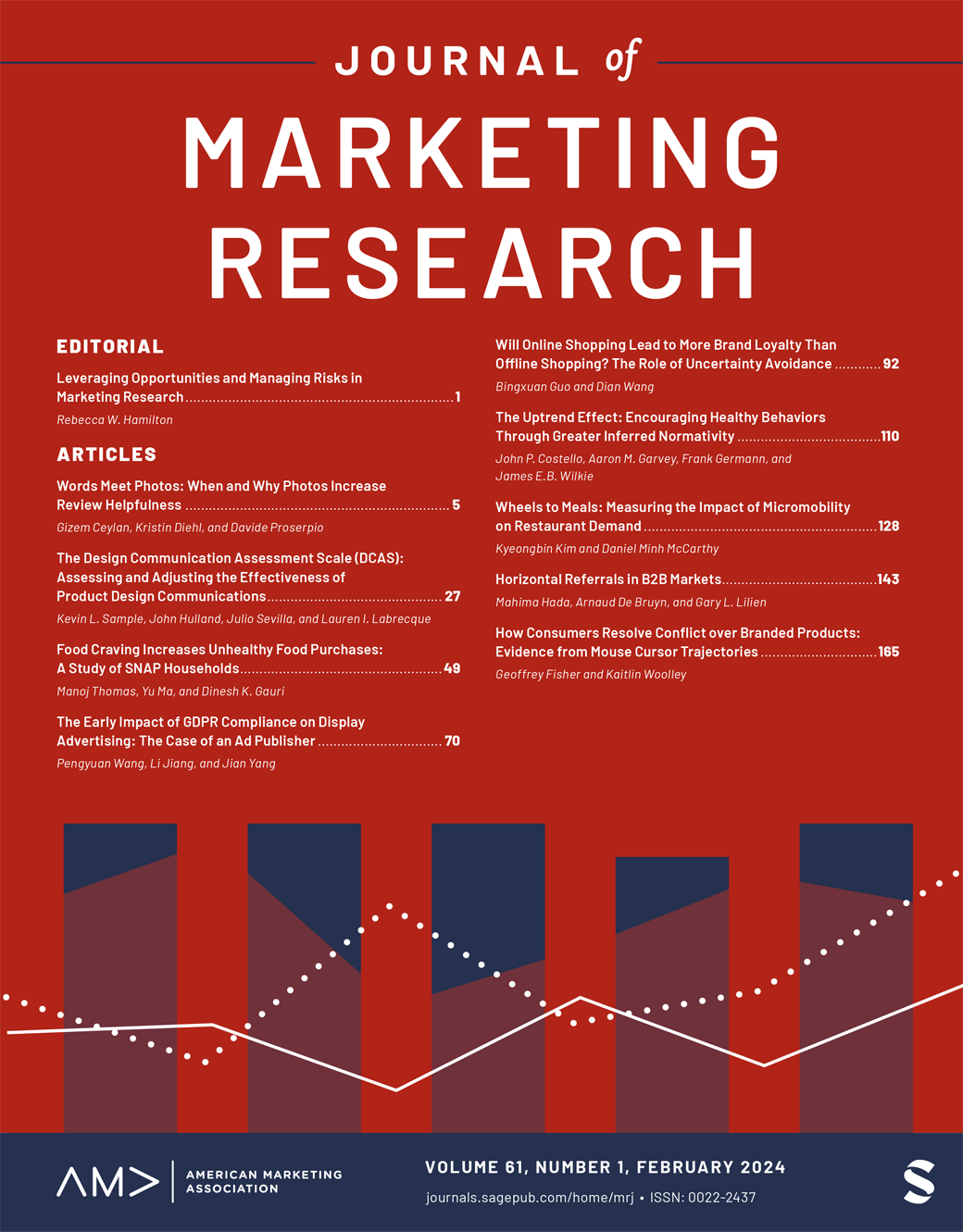EXPRESS: The Design Communication Assessment Scale (DCAS): Assessing and Adjusting the Effectiveness of Design Communications
IF 5.1
1区 管理学
Q1 BUSINESS
引用次数: 1
Abstract
This research integrates marketing literature, design theory, interviews with world-renowned designers, and well-established scale development procedures to develop a reliable and valid instrument that measures the effectiveness of design communication (i.e., the information about product designs conveyed through the product, packaging, or advertisements) via consumer evaluations. The theoretical underpinnings and face validity engaged in the development of the Design Communication Assessment Scale (DCAS) progresses the field’s understanding as to what constitutes the seven evaluative dimensions of design (form, function, solidity, usefulness, style, eco-consciousness, and uniqueness). Practically, DCAS’s versatility provides managers with the ability to gauge consumer evaluations of design communications, while enabling better communications with designers. In addition to scale development efforts and the provision of a shortened form, support for DCAS’ generalizability is provided across laboratory and field studies in which ecological validity is established. Together, these studies demonstrate that using DCAS leads to improved performance across a wide array of metrics, including click-through rates, e-mail signups, and retail sales for a diverse set of products.EXPRESS:设计沟通评估量表(DCAS):评估和调整设计沟通的有效性
本研究整合了市场营销文献、设计理论、对世界知名设计师的访谈,以及完善的规模开发程序,以开发一种可靠有效的工具,通过消费者评价来衡量设计传播的有效性(即通过产品、包装或广告传达的产品设计信息)。设计沟通评估量表(DCAS)的理论基础和表面有效性促进了该领域对构成设计的七个评估维度(形式、功能、坚固性、实用性、风格、生态意识和独特性)的理解。实际上,DCAS的多功能性为管理人员提供了衡量消费者对设计沟通的评估的能力,同时使他们能够更好地与设计师沟通。除了规模开发工作和提供简化形式外,还在实验室和实地研究中为DCAS的普遍性提供支持,其中建立了生态有效性。总之,这些研究表明,使用DCAS可以提高一系列指标的性能,包括各种产品的点击率、电子邮件注册和零售额。
本文章由计算机程序翻译,如有差异,请以英文原文为准。
求助全文
约1分钟内获得全文
求助全文
来源期刊

Journal of Marketing Research
BUSINESS-
CiteScore
10.30
自引率
6.60%
发文量
79
期刊介绍:
JMR is written for those academics and practitioners of marketing research who need to be in the forefront of the profession and in possession of the industry"s cutting-edge information. JMR publishes articles representing the entire spectrum of research in marketing. The editorial content is peer-reviewed by an expert panel of leading academics. Articles address the concepts, methods, and applications of marketing research that present new techniques for solving marketing problems; contribute to marketing knowledge based on the use of experimental, descriptive, or analytical techniques; and review and comment on the developments and concepts in related fields that have a bearing on the research industry and its practices.
 求助内容:
求助内容: 应助结果提醒方式:
应助结果提醒方式:


